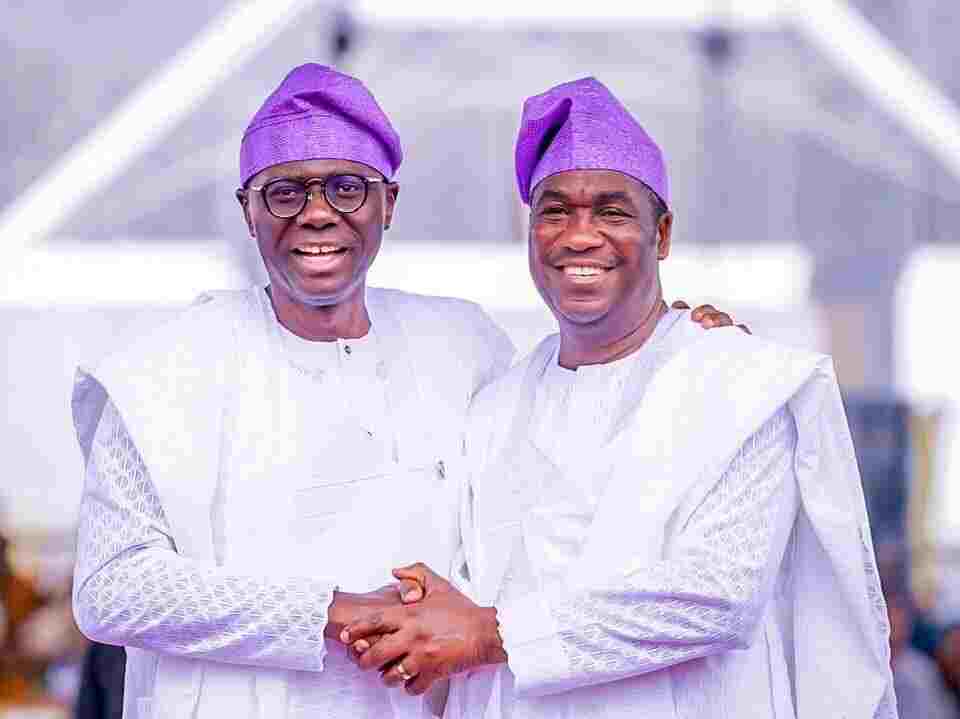In the 2024 budget, governors in Nigeria allocated significantly higher budgets to their offices compared to their Deputies, with some governors dedicating nearly 100 times more funds to their offices than those of their deputies.
A comparative data released by StatiSense show that Lagos State leads with the highest allocation to the Governor Babajide Sanwo-Olu’s office at ₦66.84 billion, while ₦2.38 billion was allocated to his Deputy Dr Femi Hamzat’s office.
Ogun State follows closely, where ₦64.19bn was budgeted to the office of Governor Dapo Abiodun, allocating meagre of ₦530.4m to his deputy Engr. Noimot Salako-Oyedele’s office.
Governor’s Office | Deputy’s Office Allocation in 2024 Budget
Abia: ₦19.16bn | ₦1.58bn
Adamawa: ₦3.83bn | ₦3.16bn
Akwa Ibom: ₦41.17bn | ₦1.85bn
Anambra: ₦33.97bn | ₦606.3m
Bauchi: ₦3.06bn | ₦592.9m
Bayelsa: ₦7.22bn | ₦1.33bn
Benue: ₦5.21bn | ₦1.89bn
Borno: ₦16.68bn | ₦3.7bn
Cross river: ₦53.39bn | ₦950m
Delta: ₦36.24bn | ₦3.17bn
Ebonyi: ₦7.92bn | ₦434.8m
Edo: ₦3.83bn | ₦374.3m
Ekiti: ₦6.10bn | ₦327.3m
Enugu: ₦32.53bn | ₦661.5m
Gombe: ₦7.65bn | ₦558.1m
Imo: ₦43.05bn | ₦2.12bn
Jigawa: ₦4.73bn | ₦419.9m
Kano: ₦3.73bn | ₦948.63m
Katsina: ₦6.94bn | ₦1.13bn
Kebbi: ₦7.95bn | ₦565.2m
Kogi: ₦17.9bn | ₦2.09bn
Kwara: ₦5.17bn | ₦341.9m
Lagos: ₦66.84bn | ₦2.38bn
Nasarawa: ₦3.43bn | ₦1.02bn
Niger: ₦11.68bn | ₦1.09bn
Ogun: ₦64.19bn | ₦530.4m
Ondo: ₦1.88bn | ₦678.8m
Plateau: ₦6.08bn | ₦1.29bn
Sokoto: ₦2.71bn | ₦520.6m
Taraba: ₦13.31bn | ₦3.50bn
Yobe: ₦3.29bn | ₦545m
Zamfara: ₦11.67bn | ₦1.63bn
Other states with notable disparities include Akwa Ibom, where ₦41.17 billion was allocated to the Governor Umo Eno’s office, leaving ₦1.85 billion for the Deputy’s office.
Similarly, Imo State apportioned ₦43.05 billion to Governor Alex Otti’s office while allocating ₦2.12 billion to the Deputy’s office.
On the other end of the spectrum, Ondo State has the lowest allocation for both offices, with ₦1.88 billion for the Governor and ₦678.8 million for the Deputy.
In terms of more balanced allocations, Adamawa State shows the least disparity, with ₦3.83 billion for the Governor’s office and ₦3.16 billion for the Deputy’s.
This trend underscores the continued prioritization of executive budgets towards the Governor’s operational needs, often leaving Deputy Governors with comparatively modest allocations.
Implications of Budget Disparities Between Governor and Deputy Governor Offices in Nigeria’s 2024 Budget
The 2024 budget allocations reveal a significant gap in funding between the offices of Nigerian Governors and their Deputies.
This trend reflects broader administrative priorities that may impact the functionality and operational capacity of Deputy Governors.
It also shows that some state governors deliberately incapacitate their deputies financially.
Key Trends and Observations
High Disparities in Allocation: The data indicate that states like Cross River, Lagos, and Akwa Ibom assign budgets to the Governor’s offices that are up to 20 times greater than those of their Deputies.
This prioritization likely enhances the Governor’s ability to implement and oversee statewide initiatives but may limit the resources available for Deputies to contribute substantively to governance.
More Balanced States: Some states, including Adamawa, Delta, and Borno, present less dramatic disparities, indicating a comparatively balanced allocation of resources. This could suggest a more collaborative governance style where both offices are sufficiently resourced to contribute to state administration.
Implications for Governance
Operational Efficiency: Disproportionate budgets could create operational imbalances. Governors with larger budgets are better equipped to handle state affairs, which may create a gap in engagement between the two offices, potentially impacting policy consistency and executive teamwork.
Political Significance: The allocations may mirror the perceived roles of Deputy Governors in state governance. Some people call them “spare tire”.
Smaller budgets suggest that Deputy Governors may play a limited role, primarily serving in support or representational capacities rather than executive functions.
Resource Allocation and Public Perception: High spending on the Governor’s office could be scrutinized if it does not translate into improved public services.
As states face increasing demands for social and economic development, questions may arise about the efficacy of such high executive budgets.
Conclusion
The marked discrepancies in allocations to governor’s office vs deputy governor’s office has prompted discussions about the evolving role and impact of Deputy Governors in Nigerian governance lately.
Addressing this imbalance could pave the way for more equitable governance structures that optimize the contributions of both offices.


